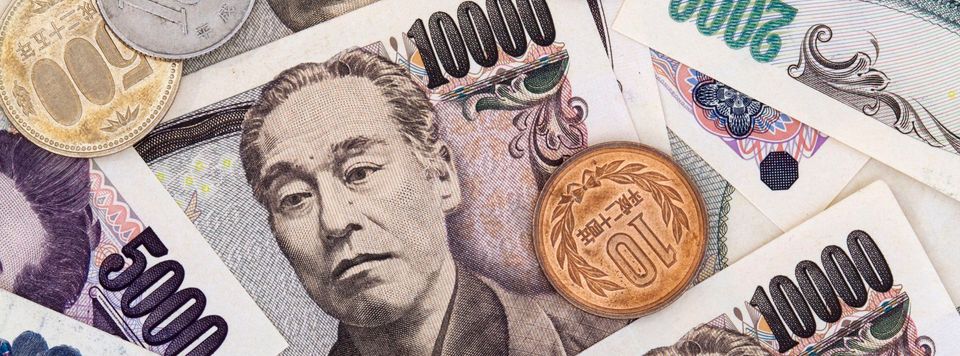Can Americans in Japan use NISA accounts?

Yes, Americans in Japan can profitably use NISA accounts, though with a significantly smaller upside than non-Americans receive. This post describes how you can profitably use a NISA account, and for whom this is worth the effort.
What is NISA?
Japan’s “Nippon individual savings account” (少額投資非課税制度) is a tax-advantaged individual savings account intended to entice conservative Japanese savers away from cash and into more potentially profitable investments. It allows contributors to invest a limited amount of money for a limited time period, avoiding capital gains and dividends taxes.
NISA accounts are available to foreign residents of Japan, are not tied to your employer, and do not require current income to use.
For Japanese people and most non-American long-term residents of Japan, the NISA program is a great tax-advantaged account that nearly everyone should use. For Americans, though, it’s a bit more complicated.
Why isn’t it obvious for Americans to use NISA?
For almost everyone else on Earth, there’s no question of whether to use tax-advantaged savings accounts in whatever country you happen to live in: tax-advantaged saving is always good, and you should basically always take advantage of every program available to you.
Unfortunately, the United States is a jealous homeland that really does not want its citizens investing abroad (purportedly in order to prevent tax evasion). As a result, the US does a few things that make it hard to use tax-advantaged accounts in Japan or in any other country. Concretely:
- The US taxes global income (though it offers tax credits to avoid double taxation of the same income).
- The US does not respect most foreign tax-advantaged accounts, and taxes contributions to, balances in, and withdrawals from non-US tax-advantaged accounts as if they were regular brokerage accounts.
- The US imposes a brutal reporting and tax treatment on investments in mutual funds, ETFs, and other investment vehicles issued by foreign banks, as well as some individual foreign company stocks (the dreaded PFIC treatment).
For this reason, most foreign tax-advantaged accounts (including Japan’s iDeCo plan) are non-starters for Americans.
Fortunately, there is a path to profitably use a NISA as an American resident in Japan. It’s not as good as being a non-American, but it is still workable.
How to use a NISA in Japan as an American
Given the constraints described above, it is not trivial to use a NISA profitably, but it can be done.
Which kind of NISA can Americans use?
As of 2023, there are two flavors of NISA:
- Ordinary (一般): ¥1.2M annual contribution limit; investments in the account grow for five years without dividends tax or income tax; A wide variety of investment vehicles are supported.
- Tsumitate (つみたて): ¥400,000 annual contribution limit; investments in the account grow for five years without dividends tax or income tax; only a limited number of mutual funds are supported.
In both cases, contributions are made from regular post-tax income; there’s no income tax break associated with either contributions to or withdrawals from either flavor NISA.
Americans can only profitably use the Ordinary NISA. Tsumitate NISA only allow investing in mutual funds, which are invariably issued by Japanese banks, and are therefore all PFICs. The tax-hell of PFIC compliance is not worth it for the small sum of money, so Tsumitate is a non-starter for Americans.
In 2024, the entire NISA program will be reworked with “New NISA,” which will combine the two existing flavors into one account (current users have to pick one or the other type) and increase the annual contribution limit, and make the holding period forever. When the New NISA is rolled out, only the "growth investment" portion (成長投資枠), which mirrors today's ordinary NISA, will be relevant for Americans due to the same PFIC concerns that make Tsumitate NISA unusable today. That portion is slated to allow a maximum of ¥18M in lifetime contributions, which will be able to grow tax-free indefinitely.
What should Americans invest in with a NISA?
In order to avoid PFIC compliance hell, Americans should use NISA (and any other accounts in Japan) to invest only in:
- ETFs and mutual funds issued directly by American banks
- Stock in individual American companies
- Stock in foreign companies that do not generate most of their revenue “passively” (so, no real estate and no investment banks).
Fortunately, the first item on the list covers pretty much everything a rational long-term investor could want (at least in theory – more on that in the bank section below). If you can find a bank that will directly sell you the real ETF issued by a US financial institution, you’re in good shape.
However, be aware of (and avoid!) “depository receipts,” which you may encounter from some brokerages. These depository receipts are basically “wrapped” ETFs or stocks, wherein a Japanese firm buys a bunch of shares of a US security, creates a Japanese legal wrapper around the American security, and then issues shares of their localized stock on a Japanese exchange. While these are a fine way for a Japanese bank to mirror the economic performance of (for example) a Vanguard fund and claim a little fee for the convenience of relisting the stock in yen on a Japanese exchange, they are considered PFICs, and owning them will land you in hot water with the IRS.
Make sure you’re buying the real American funds, with the same regular American stock ticker symbol that you see used by that fund on US exchanges like the NYSE.
Which bank should Americans use?
There are hundreds of institutions offering NISA, and most of them will accept American clients. However, we can’t pick just any bank: only a subset of them offer direct access to American stocks and ETFs, and because of additional compliance requirements imposed by the US, almost all of these banks will not allow American citizens to buy US stocks and ETFs.
Concretely, the popular Rakuten Securities bank widely advertises access to US stocks and ETFs, and it does allow Americans to open accounts, but US citizens are not able to buy those US stocks or ETFs.
Unfortunately, Interactive Brokers Japan does allow Americans in Japan, to buy American funds, but does not currently offer a NISA.
At this point, the only bank I can partially recommend is Nomura Securities. Be aware that their customer-facing site is entirely in Japanese.
While I haven’t opened an account there yet myself, other Redditors and I have heard from customer service at Nomura Securities that they do allow US citizens to buy US stocks and ETFs, including in a NISA. If you either succeed or fail at opening an account there and buying US stocks as an American, do let me know and I’ll update this post!
What tax advantage does NISA offer for Americans?
Given the restrictions and complexities involved, what does actually using a NISA in Japan do for Americans?
As with almost all tax-advantaged individual investment accounts in other countries, the United States does not recognize a NISA as being in any way “special.” So, while a NISA offers a reprieve from income tax on dividends and capital gains tax on appreciation for five years, the US does not recognize those advantages.
Fortunately, there are still two tax advantages for Americans using a NISA.
- Capital gains tax rate arbitrage: Japan’s capital gains tax is 20.3%. Unless you are exceedingly wealthy, America’s long-term capital gains tax rate is 15%.
- Dividends tax rate arbitrate: Japan’s dividend tax rate is 20.3%. Unless you are exceedingly wealthy, America’s long-term capital gains tax rate is 0% to 15% on dividends from most US investments, depending on your income.
NISA shields your funds from the Japanese capital gains and dividend taxes. While the US still thinks capital gains and dividends in a NISA are taxable, it applies a lower rate than the Japan would. The result is at least 5.3 percentage point savings on dividends and capital gains tax (which is 26% of the Japanese tax liability).
Assuming a 2% dividend yield on a globally diversified index fund portfolio, avoiding the dividend tax removes a 0.1% annual drag on your investment returns, or about $0.70 per $100 invested over five years at a 7% rate of return.
Assuming 7% returns, the capital gains tax arbitrage saves $2.1 per $100 invested after five years. Or, in yen terms, this is a difference of ¥47,100 after 5 years of 7% growth on an initial ¥1.2M.
While these benefits are not huge, they add up: together, they are a 2.8% increase in post-tax account value after five years, for relatively little work. With New NISA removing the five year limit on NISA holdings, this benefit will become all the more material.
Which Americans actually benefit from NISA?
This is not fully useful to everyone.
As an American, your life is probably simplest for lots of practical reasons if you keep most of your investments in US-based institutions, especially if you don’t plan to stay in Japan forever. This is all the more true because some banks will likely close your account if you leave Japan, which could create additional complexity for you.
However, if you qualify as a permanent resident for tax purposes (which means you’ve physically lived in Japan for 5 of the last 10 years, regardless of your visa status), then your worldwide income is taxable by Japan, including dividends on foreign stock in overseas accounts.
Additionally, all tax residents of Japan, including non-permanent ones, owe capital gains on stock purchased after 2017-04-01 and sold while you live in Japan. Pretty much everyone living and working in Japan counts as a tax resident under this definition.
So, if you live in Japan, you benefit from the capital gains tax arbitrage opportunity. If you qualify as a permanent resident for tax purposes, you benefit from the dividend arbitrage. And if you plan to live in Japan for the next five years, then you have plenty of time to get all the benefits of the tax rate arbitrage opportunities. So, long-term residents of Japan should do it.
If you’re here on a short-term assignment from the US, this is almost certainly not worth your time. Just keep remitting your money to America, use a backdoor Roth IRA in the US, and invest in a US-based regular taxable brokerage account.
Standard disclaimer: I am not a lawyer or accountant or any sort of certified financial professional. I’m just a personal finance nerd who likes finding optimizations. This is an educational post.


